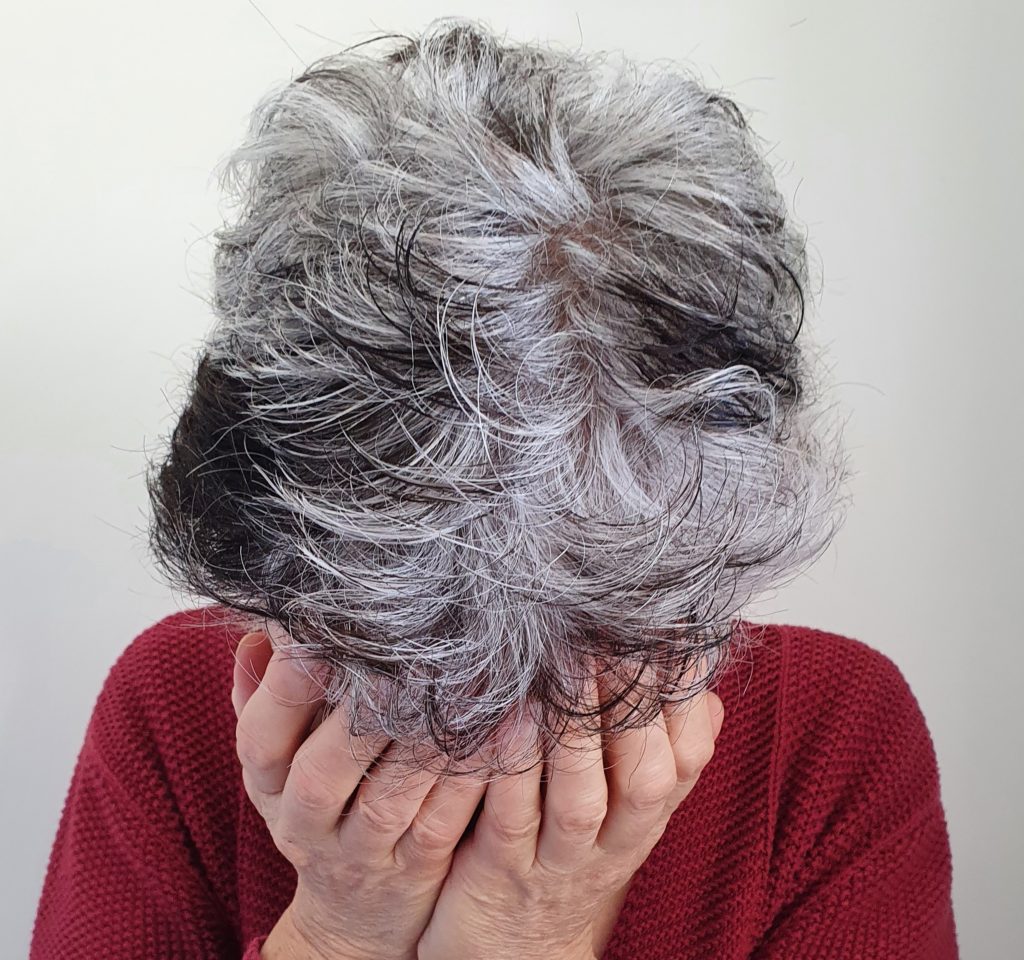
Lord hear our praying
Lockdown ending – extending!
Cries too deep for words

Lord hear our praying
Lockdown ending – extending!
Cries too deep for words
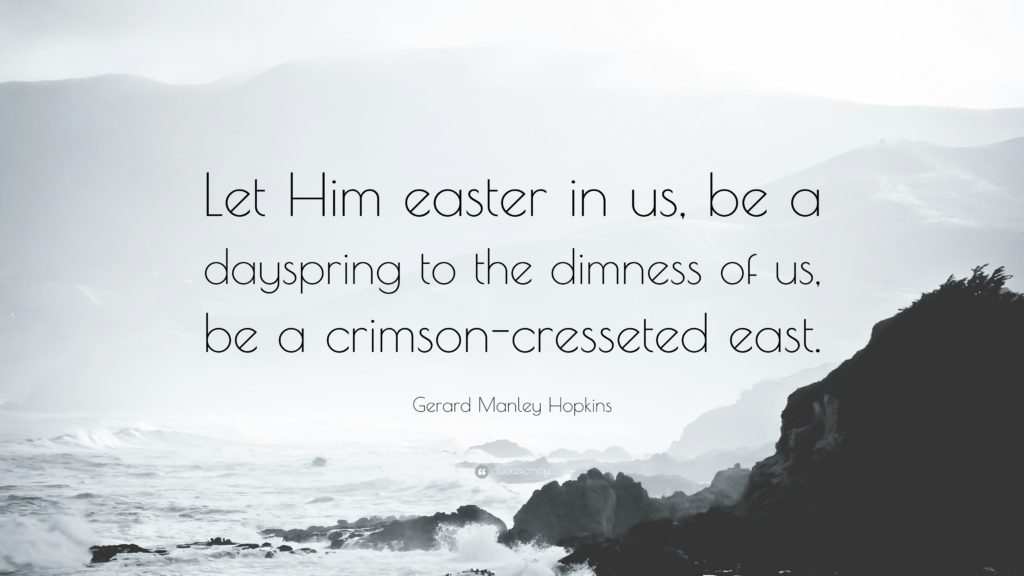
https://quotefancy.com/gerard-manley-hopkins-quotes
The Wreck of the Deuschland by Gerard Manley Hopkins
The Deuschland was a ship that ran aground on a shoal 25 miles off the coast of England in 1875. Waves battered it for 30 hours before any rescue attempt was made and, adding insult to injury, men from nearby towns looted the wreckage, taking anything of value including stealing jewellery and valuables from the bodies of the deceased.
Among the dead were five Franciscan nuns who had fled persecution in Germany and were on their way to the United States. Hopkins dedicated his poem to them with this inscription: To the happy memory of five Franciscan Nuns, exiles by the Falk Laws, drowned between midnight and morning of Dec. 7th, 1875.
‘Let him easter in us, be a dayspring to the dimness of us, be a crimson-cresseted east’ comes towards the end of what is a long poem. It’s the line that has captured the imaginations of writers and people of faith ever since because Hopkins, speaking on behalf of the British people who let the tragedy happen, asks one of the nuns to ‘remember us’ as she enters into heaven to be with the risen Christ before referencing and perhaps challenging our understanding of Easter.
Under Hopkins’s pen, Easter is no longer a noun, able to be relegated to a long-ago event. Rather, ‘easter’ becomes a verb in the present-continuous tense, something that continues to transform our present lives, to give us new life, and to offer us hope of what will happen when the risen Christ enters our lives.
This line of the poem becomes a prayer: Let Easter get into us. Let Easter come and live where we live. Let Easter permeate our souls. Let Easter expose the dimness in us and shine its light into our darkest corners.
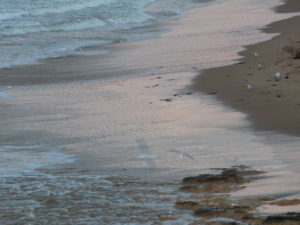 I rarely witness dayspring even if I am up early enough because I don’t have any east-facing windows that give me an unobstructed view of the horizon. When I first became acquainted with this poem I was attending a prayer retreat at Queenscliff. One morning, I made it my business to get up early and walk the beach in order to witness dayspring so that I could put an image to Hopkin’s prayer. I have always loved sunrises, but what I noticed on that occasion was the way in which the sky lightened and the sand and sea took on tinges of pink before I saw the crimson crest.
I rarely witness dayspring even if I am up early enough because I don’t have any east-facing windows that give me an unobstructed view of the horizon. When I first became acquainted with this poem I was attending a prayer retreat at Queenscliff. One morning, I made it my business to get up early and walk the beach in order to witness dayspring so that I could put an image to Hopkin’s prayer. I have always loved sunrises, but what I noticed on that occasion was the way in which the sky lightened and the sand and sea took on tinges of pink before I saw the crimson crest.
As we ‘let him easter in us, be a dayspring to the dimness of us, be a crimson-cresseted east’, let us acknowledge the dim places, particularly at the communal and political levels of our lives, and let us long, pray and look for the ways in which light creeps in to them, the dayspring potential for a brand new, resurrection day.
This photo popped up on my Facebook news feed a few days ago:
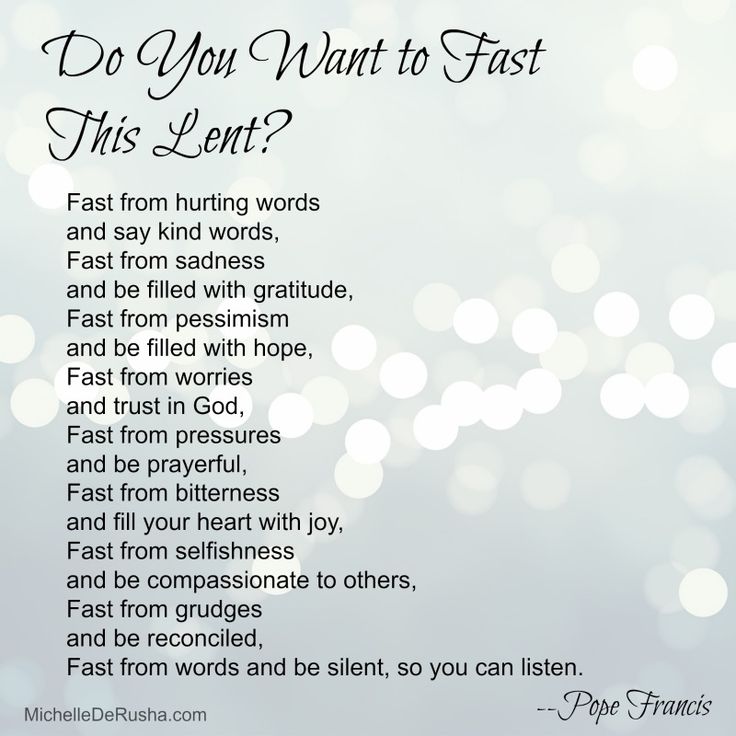
Over the years, I have often embarked on a Lenten fast – sometimes from chocolate, at others from dessert or wine or coffee. Always an indulgence, the theory being that as I abstain, it acts as a prompt to pray. Often, I have caught myself remembering my pledge as I pop the object of my fasting in my mouth.
These words of Pope Francis appeal to me on the one hand and appall me on the other. I know that I will remember my fast as I speak that unkind word or fail to see the positive in the face of all that is not as it should be. But I’ve decided to give it a go.
When I fail, it will be an invitation to remember that I aspire to more; to focus my prayer, not on my failing, but on my desire. I encourage you to join me in this Lenten fast; if the list seems overwhelming, pick one as a focus. I plan to focus most on the last one – to fast from words and be silent, so that I can listen.
Pope Francis, in his 2018 Lenten address, extends his invitation to ‘men and women of good will’ that they join him in ‘almsgiving, fasting and prayer’. Prayer might be too much of a stretch, but fasting as defined above, might not be too big an ask. So, I call on men and women of good will to fast with me between now and Easter; surely, we would have nothing to lose and much to gain.
 Did you see the news report last week that announced that “Chinese scientists have used satellite technology for the first time to generate and transmit entangled photons — particles of light — across a record distance of 1,200 kilometres on Earth”? This is more than 10 times the distance previously achieved using land-based fibre optic technologies.
Did you see the news report last week that announced that “Chinese scientists have used satellite technology for the first time to generate and transmit entangled photons — particles of light — across a record distance of 1,200 kilometres on Earth”? This is more than 10 times the distance previously achieved using land-based fibre optic technologies.
“A cornerstone of quantum physics is a process called entanglement, where the properties of two particles — such as spin, position and momentum — intimately affect each other, even when those particles are separated by large distances.”
Last year, I attended a silent retreat which introduced me to the idea of quantum entanglement as a way to understand how prayer ‘works’, especially contemplative prayer. As we observe the way things are and prayerfully contemplate how they should be, praying for healing and wholeness in our world, this affects the object of our prayer. When we pray in this way together and agree on what we know is God’s way, we unleash a power that affects the other.
I recently attended another silent retreat with the enigmatic title of ‘One’. Here, I was introduced to these words from Teilhard de Chardin, French philosopher and Jesuit priest (1881-1955):
We are ONE,
after all,
You and I,
together we suffer,
together exist
and forever will
recreate each other.
They come together in my mind with the idea of quantum entanglement. The more I observe the other as one with me, the more I understand that my actions forever impact the other and vice versa. The expressions of hatred and violence in the world, while removed from me, none-the-less affect me. They chip away at our common humanity.
Conversely, every action of mine that works towards the healing and wholeness of the other has the power to do good, even if I can’t see any change.
The very action of publishing this spins, positions and sets off a momentum that affects the other, further calling me to the discipline of mindfulness.
I invite you to ponder this with me; we have the power to bring change to our world.
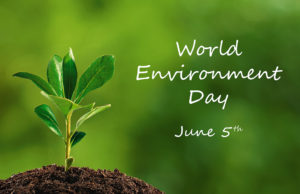 Today is World Environment Day. Established by the United Nations Environment Program and the World Meteorological Association in 1972, it’s celebrated annually on June 5th.
Today is World Environment Day. Established by the United Nations Environment Program and the World Meteorological Association in 1972, it’s celebrated annually on June 5th.
To mark the day falling on a Sunday this year, Uniting Justice Australia prepared a resource pack tied into the Lectionary readings for use in today’s services. Here’s an edited version of a story, written by Rev. Eseta Waqabaca-Meneilly, from these resources:
60-year-old Lionola in Tuvalu is packing her woven coconut basket with items she will take with her to the new place. She will have to learn to call this new place ‘home’. What will this new home be like, she wonders. She hasn’t even been to this other island, also in the South Pacific. All she knows is that it’s called Koro, a place that doesn’t have the rising seawater problems that her islands have.
She neatly folds in some clothes and items she will need. So many things she can’t take with her – flowers and food from her garden which are now saltwater-ridden and will not grow well anywhere; her beautiful pride of Tuvalu handcrafted mats, fans and shell necklaces that she had painstakingly learnt to weave and thread from her mother and grandmother as she was growing up. She may not be able to recreate these in her new `home’. The pandanus leaves will be wrong, the stain, the texture. All wrong. Lionola starts to cry into her handkerchief.
The plane will be here tomorrow to take her and some relatives to Koro. There is no hope. She suddenly brightens up and wipes away tears. There is hope! She reaches to the bottom of her basket and pulls out two books, a Bible and a hymn book, both written in the Tuvalu language. Her hope is in these books. It is called God.
One of the Lectionary readings today comes from the Hebrew scripture found in 1 Kings 17:8-24. Set against the backdrop of drought and famine, it tells the story of a widow who is about to prepare what she thinks will be the last meal she and her son will eat. Into this desperate place comes the prophet, Elijah, who asks her to share this last precious meal with him. A big ask! When our resources are depleted and we’re running on reserve, we are tempted to clutch what we have to ourselves and harden ours hearts towards others, to turn our compassion down to zero.
This is why the story from Tuvalu moves me – I think of myself as being concerned about climate change. I’ve attended protest events, waved a placard! I worry about what kind of world my grandchildren will inherit. But I’m not really under threat, living as I do in Melbourne; at least, not a threat that I can see. I’m not going to lose my home, my country. Unlike Lionola.
The sobering reality is that the threat is very real to people not that far away from me and I have barely given them a thought.
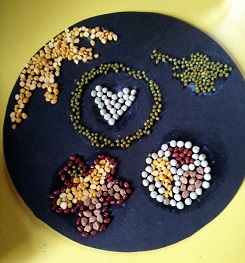
Mandala created by Abi, Tylden Uniting Church, World Environment Day, 2016
Rev Dr Ji Zhang is quoted in the Uniting Justice Australia resources:
Climate Change, if we look closely and honestly, is about suffering. It is a modern doctrine of suffering written in environmental language and supported by scientific evidence. This suffering has a myriad of appearances. What the climate crisis teaches us is something about ourselves. Climate change is not just an environmental crisis, but also a crisis of humanity. Its essence is brokenness …
Taking action on climate change is a way of making a public confession, but also an invocation for God’s life to transform us into hope.
I like this idea of action including confession and invocation in respect to climate change. Confession helps me stare into the abyss and come face to face with what ought not to be. Invocation or prayer, especially contemplative prayer, brings me back to hope: that the universe is teeming with the life-giving energy of an all-loving God, all is not lost. Thanks be to God!